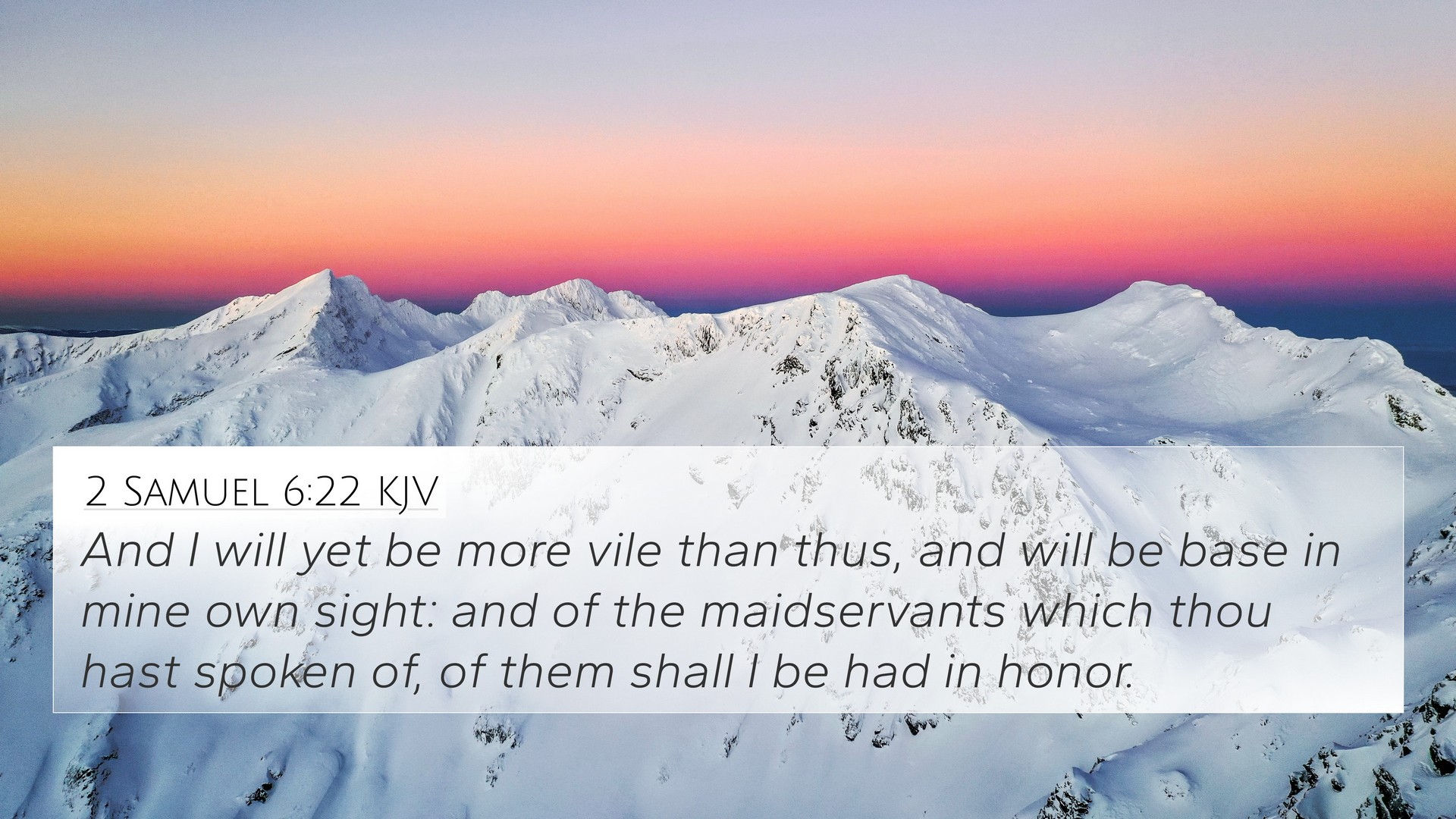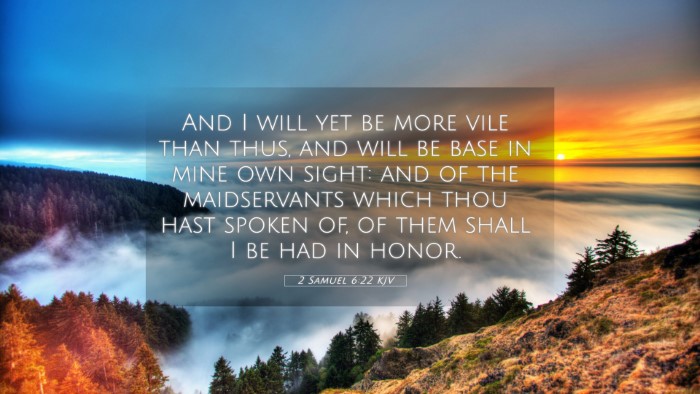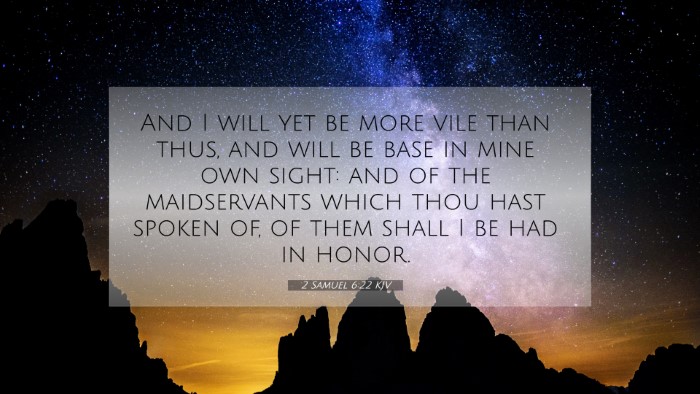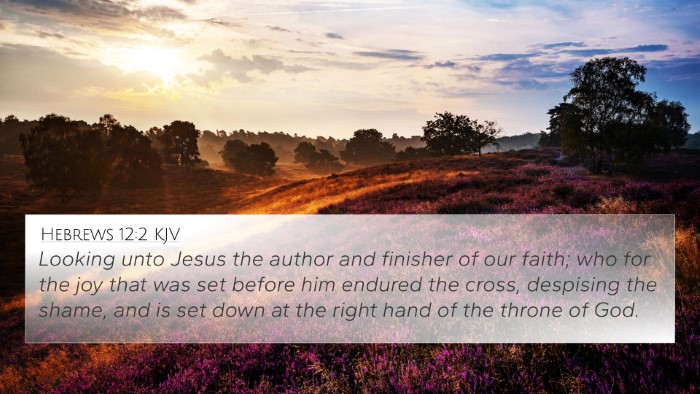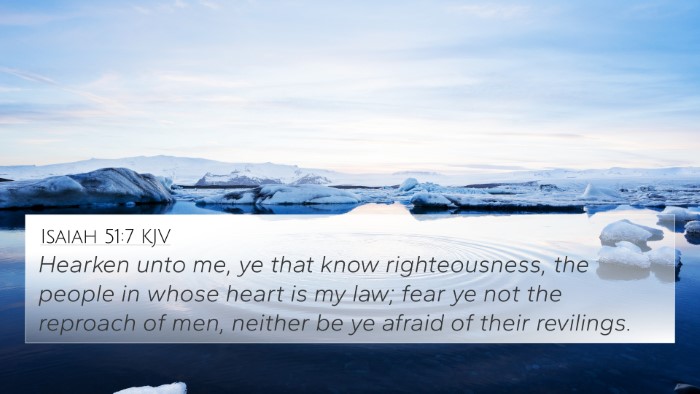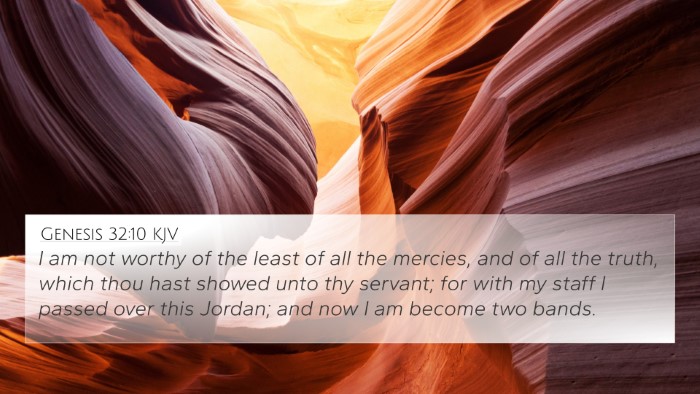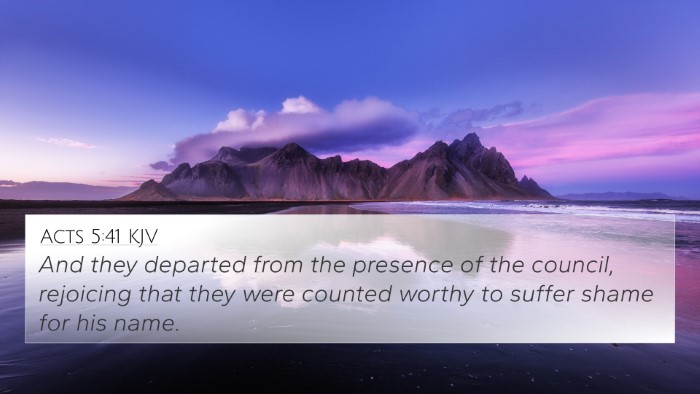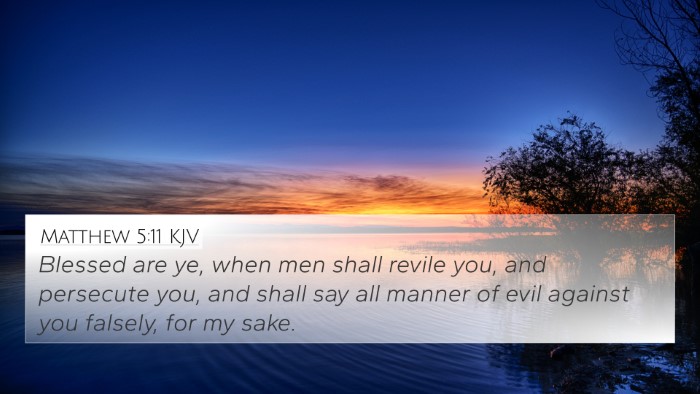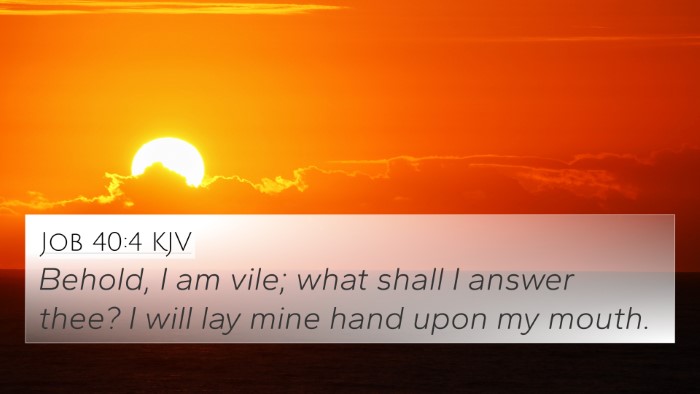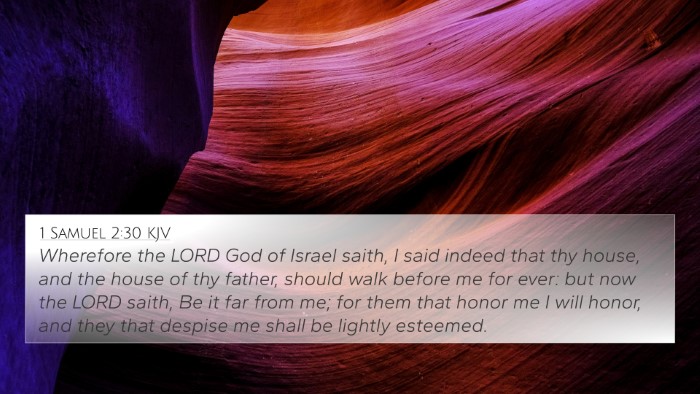Understanding 2 Samuel 6:22
2 Samuel 6:22 states: "And I will be yet more vile than thus, and will be base in mine own sight: and of the maidservants which thou hast spoken of, of them shall I be had in honour." This verse reflects King David's response to criticism regarding his exuberant worship of the Lord during the procession of the Ark of the Covenant into Jerusalem. Here, we explore its significance through the insights of esteemed public domain commentaries.
Contextual Analysis
This passage occurs during a pivotal moment in 2 Samuel, where David celebrates with great joy, dancing before the Lord. His actions are met with disdain from Michal, his wife, who views his behavior as undignified for a king.
Commentary Insights
-
Matthew Henry emphasizes the nature of true worship, suggesting that David's willingness to embarrass himself in front of others is a testament to his devotion. He highlights that David prioritized divine approval over human respect.
-
Albert Barnes expounds on the idea of humility, noting that David recognizes his position before God. He is unashamed of his actions, asserting that true honor comes from serving God wholeheartedly, even if it appears basely to others.
-
Adam Clarke draws attention to the cultural implications of David's dance, contrasting it with the expectations of royal behavior. Clarke posits that David’s actions challenge societal norms, advocating for a personal relationship with God that transcends public opinion.
Key Themes
Several themes emerge from this verse and the surrounding context, including:
- Worship and Praise: David’s dance is a manifestation of his joy and reverence toward God.
- Public Perception vs. Divine Acceptance: The contrast between Michal's judgment and David's heart for God highlights the differences in valuing human perception versus divine validation.
- Humility: David expresses that he is willing to be "more vile," showcasing his humility before God.
Cross-References
To gain a deeper understanding of this verse, we can explore inter-Biblical dialogue through relevant cross-references:
- Psalm 150:4-6 - A call to praise God through dance and music.
- 1 Chronicles 15:29 - Michal’s disdain for David’s actions during the Ark's arrival mirrors her comment in 2 Samuel.
- Acts 3:8 - The joy of praise reflecting the celebration found in David’s dance.
- Philippians 2:3-5 - Call for humility, resonating with David's declaration about being base in his own sight.
- Luke 7:47 - The concept of love and forgiveness leading to authentic worship, akin to David’s uninhibited expression.
- 1 Samuel 16:7 - The Lord looks at the heart, aligning with David’s internal devotion over external status.
- Matthew 5:11-12 - Rejoicing when insulted for righteousness, paralleling David’s experience with Michal’s reproach.
Tools for Bible Cross-Referencing
Understanding this verse is enhanced through various tools for Bible cross-referencing which help in identifying connections between Bible verses:
- Bible Concordance: Useful for searching specific words and themes across verses.
- Bible Cross-Reference Guides: These guides often provide thematic links and parallels.
- Cross-Reference Bible Study: A method for exploring how different scriptures speak to one another, enhancing comprehension of a passage.
Applying Insights
In analyzing 2 Samuel 6:22, readers are encouraged to reflect on the following:
- Personal Worship: How do we express our devotion to God, and are we willing to set aside societal expectations?
- Valuing God’s Approval: How can we prioritize divine approval over human judgment in our lives?
Conclusion
2 Samuel 6:22 invites believers to examine their hearts and the authenticity of their worship. By embracing the humility shown by King David, we can foster a deeper and more genuine relationship with God, unencumbered by the weights of societal judgment. Engaging with cross-references and thoughtful study aids fosters a richer understanding of biblical texts and their interconnectedness.
